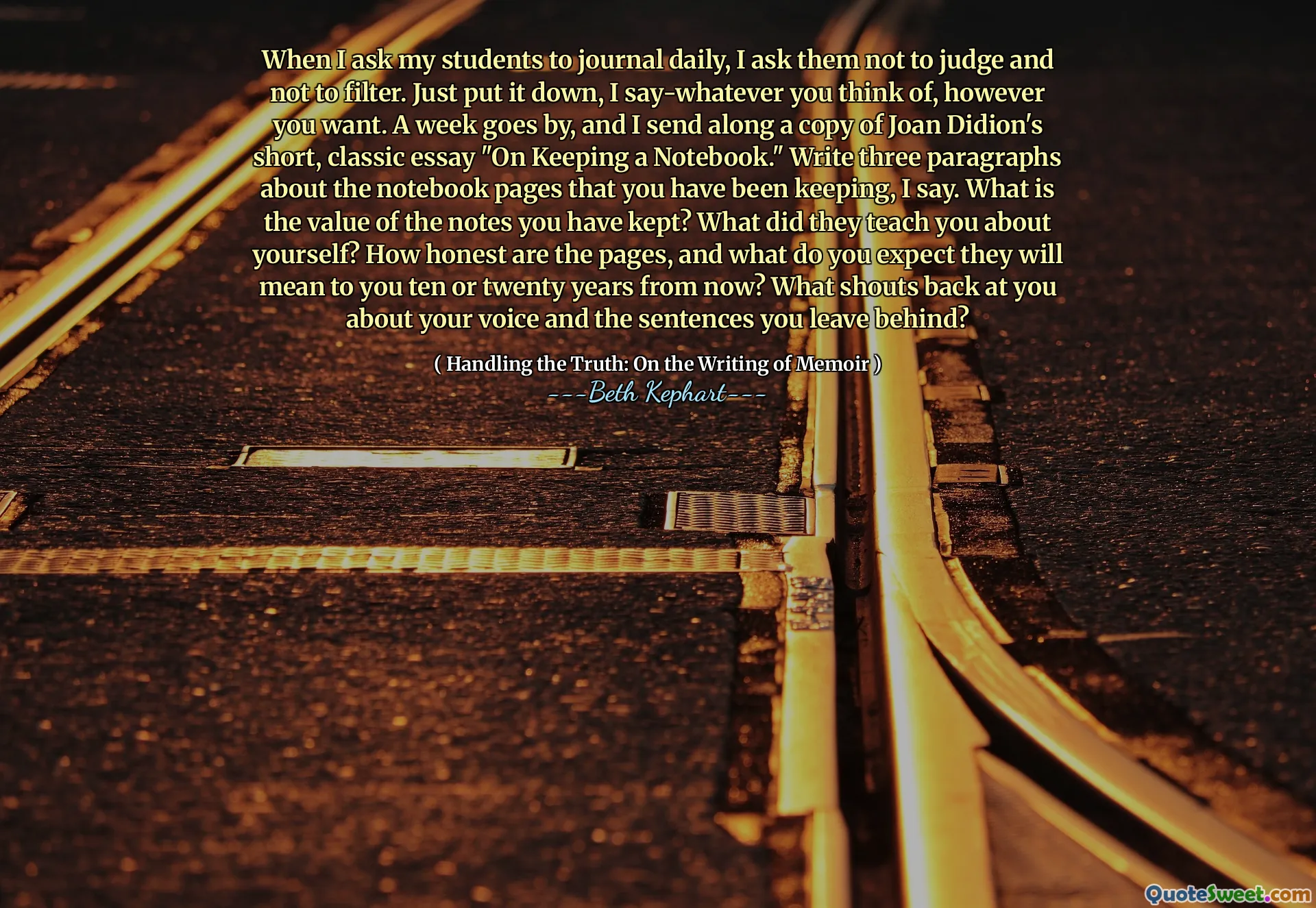
When I ask my students to journal daily, I ask them not to judge and not to filter. Just put it down, I say-whatever you think of, however you want. A week goes by, and I send along a copy of Joan Didion's short, classic essay "On Keeping a Notebook." Write three paragraphs about the notebook pages that you have been keeping, I say. What is the value of the notes you have kept? What did they teach you about yourself? How honest are the pages, and what do you expect they will mean to you ten or twenty years from now? What shouts back at you about your voice and the sentences you leave behind?
In her book "Handling the Truth: On the Writing of Memoir," Beth Kephart encourages her students to engage in daily journaling without the fear of judgment or censorship. She emphasizes the importance of freely expressing thoughts and feelings on paper, allowing for an authentic and unfiltered narrative. After a week of this practice, she introduces Joan Didion's essay "On Keeping a Notebook," prompting her students to reflect more deeply on their journaling experiences.
Kephart asks her students to consider the insights gained from their notebook pages, their level of honesty, and how they perceive these writings will impact their future selves. They are urged to think about the significance of their recorded thoughts, how those words resonate over time, and what their writing reveals about their identities. This reflection process is not only a means of self-discovery but also an exploration of the evolving nature of personal voice through written expression.






